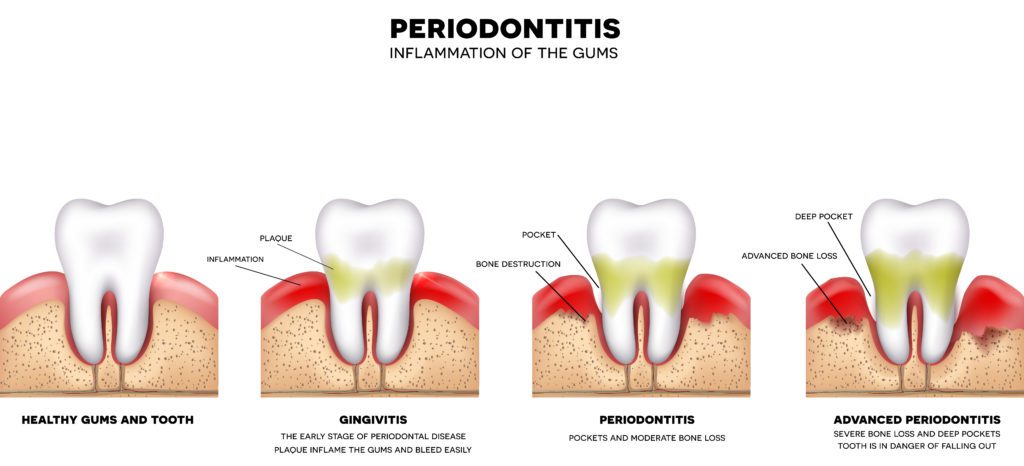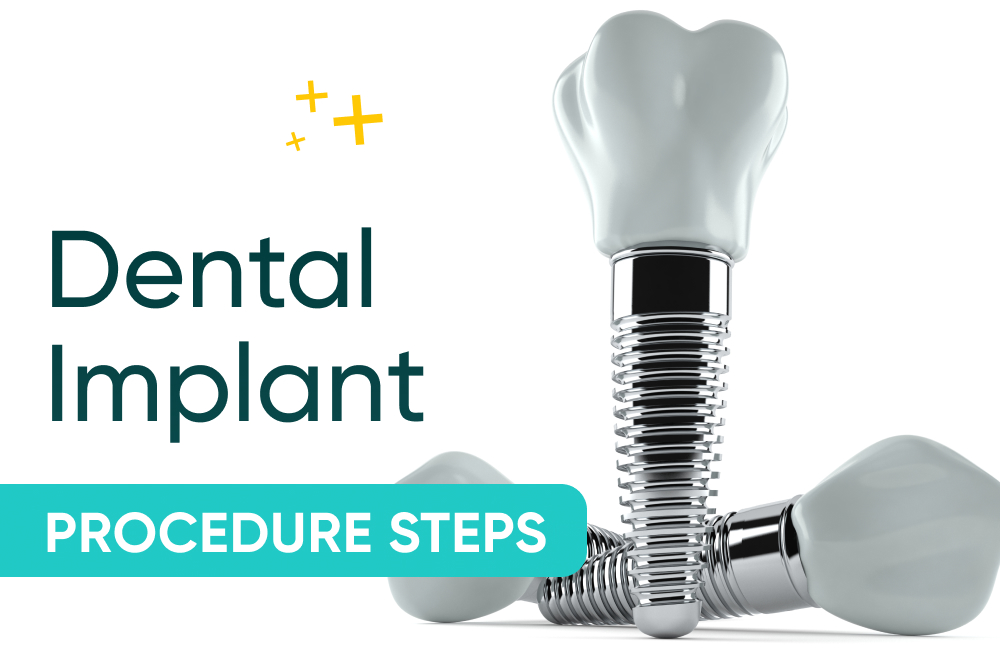Gum inflammation (gingivitis) is common; many people develop it at some point in their lives. If you notice that your gums are red and swollen, or they are bleeding when you brush your teeth, contact our dental practice today. Bleeding gums are not normal, but about 50 percent of adults over age 30 have them, according to the National Institutes of Health. You could have gingivitis, but it is reversible and you can learn how to prevent it from returning.
How Would I Know if I Have Gingivitis?
Only a dentist can diagnose gum disease, but the symptoms of gingivitis include:
- Bright red gums
- Puffy or swollen gums
- Gums that bleed when you floss or brush
- Tender gums
- Unpleasant breath
If you notice any of these symptoms, please contact us to make an appointment. The sooner you call, the better. You do not want the disease to progress. Gingivitis does not always turn into periodontal disease, but you can cure gingivitis. When it advances, your dentist can only try to control the condition to prevent further damage.
The symptoms of periodontal disease include:
- Gums pulling back from your teeth
- Visible pus between your teeth and gums
- Unusual spaces between your teeth
- Loose teeth
- Pain while eating
What Causes Gingivitis?
Everyone has bacteria in their mouth. When bacteria and food particles combine, they form a sticky substance called plaque. You can brush plaque off, but when you miss places, the plaque stays on your teeth and hardens into tartar. The plaque and tartar are what irritate your gums and cause inflammation.
Some people are more likely to develop gum disease. Risk factors include:
- Smoking or tobacco use. Smoking also reduces the effectiveness of periodontal disease treatment.
- Hormonal changes in women who are pregnant or menstruating
- Certain medications, including some heart medicines and antidepressants
- Stress
- A lack of dental care
- Increasing age
- Genetic susceptibility
- Illnesses that lower your immune response
- Poor nutrition
- Poorly fitting or damaged restorations, which can trap plaque
Gum disease rarely occurs in an individual until they are in their 30s, although teenagers sometimes get gingivitis. Men get periodontal disease more often than women.
What Happens If I Don’t Get Gingivitis Treatment?
Gingivitis is the mildest form of gum disease. If you ignore it, gingivitis can advance to periodontitis. Bacteria will get under your gumline, attacking the tissue and bone holding your teeth in place. Your gums will begin to pull away from your teeth. Next, your teeth will become loose and eating will be painful. Eventually, your teeth will fall out if you don’t seek treatment to halt the disease’s progression. Getting gingivitis treatment and regular exams and teeth cleanings is essential if you want to avoid periodontitis.

CAN UNCONTROLLED GUM DISEASE AFFECT MORE THAN MY TEETH?
Untreated periodontal disease can damage your body, not just your mouth. Researchers believe that periodontal disease inflammation is why it is associated with other systemic diseases. Studies have linked gum disease to:
- Type 2 Diabetes: An estimated 30 million people in the United States have type 2 diabetes. The American Dental Association says individuals with severe periodontal disease have higher blood sugar levels long-term. They also have a more difficult time controlling their blood sugar. Treatment can cause blood sugar levels to drop. Gum disease also increases a diabetic’s chance of having kidney complications.
- Cancer: Men with periodontal disease have a 14 percent higher risk of developing cancer than men without gum disease, according to the American Academy of Periodontology.
- Heart Disease: Cardiovascular disease is the number one killer of adults in the United States. Research shows people with periodontal disease have a higher risk of developing cardiovascular disease. Gum disease also makes heart conditions worse.
- Stroke: People who have a stroke are more likely to have gum disease. Studies are currently underway to establish the relationship between the two.
- High Blood Pressure: According to the American Heart Association’s journal, Hypertension, people with healthy gums have lower blood pressure.
- Osteoporosis: If you have osteoporosis, advanced periodontal disease can cause tooth loss to occur more frequently as the bone that supports your teeth has a lower density.
- Premature Births: According to the Mayo Clinic, periodontal disease is linked to low birth weight and premature births.
- Alzheimer’s Disease: In 2017, a study discovered that individuals who had untreated periodontal disease for a decade were 70 percent more likely to develop Alzheimer’s disease than those who did not have gum disease.
- Rheumatic Diseases: According to the American Association of Periodontology, periodontitis contributes to the progression of rheumatic diseases.
- Respiratory Diseases: It’s possible to inhale the bacteria from periodontal disease into your lungs. This can cause or worsen pneumonia, bronchitis and emphysema.
Monitoring your gum health and looking for the early symptoms of gum disease can lead to better health, in addition to helping you keep your natural teeth for as long as possible.
HOW DO DENTISTS TREAT GINGIVITIS?
Professional gingivitis treatment includes a professional teeth cleaning and instruction in proper oral care, so the disease will not return. If you have tartar on your teeth, only a dentist or hygienist can remove it using special instruments, so home remedies will not work if you have tartar in addition to plaque on your teeth.
Dentists typically recommend that you brush twice a day with a soft toothbrush. Electric toothbrushes are especially effective at removing plaque. You should floss once a day as well. Doing this, and using a bacterial mouthwash, should keep gingivitis from returning.
The goal of gum disease treatment is to halt the progression of disease, and in advanced cases, to restore the bone and gums. If you have more advanced gum disease, your dentist may suggest a deep cleaning. This treatment removes the bacteria from underneath your gums and smooths out the root so that plaque will have trouble sticking to it. In the most advanced cases, your dentist may recommend surgery.
Please make an appointment with our dentist online or call us. We can help keep your oral health on track so you won’t ever need periodontal disease treatment.





